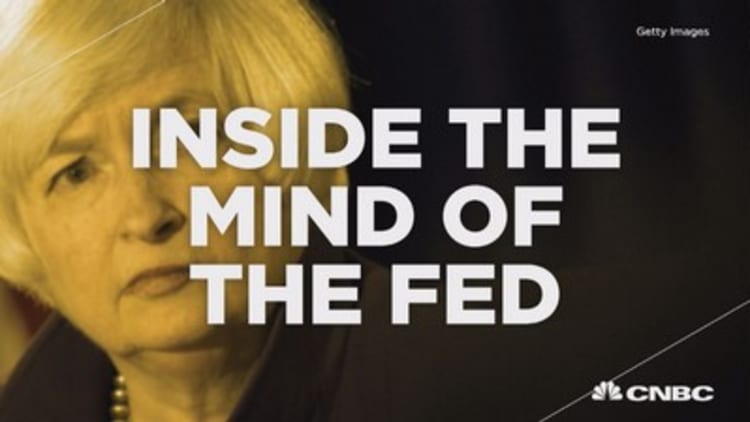
Traders have been using junk to bet against the possibility that the Federal Reserve will raise interest rates anytime soon.
Exchange-traded funds that track high-yield bond indexes have been the beneficiaries of a cash surge in recent weeks as market participants figure the central bank probably won't raise rates in 2015, and it could be well into 2016 before anything happens.
In just the past week alone, three bond-related ETFs pulled in $2.4 billion. Two are focused on high-yield, or junk, bonds, according to ETF.com, despite repeated warnings on Wall Street that the segment of the market is headed for the rocks.
The iShares iBoxx $ Investment Grade Corporate Bond, the iShares iBoxx $ High Yield Corporate Bond and the SPDR Barclays High Yield Bond have been hugely popular.
During October, the group has pulled in $6.6 billion, with the two junk funds attracting about $4.3 billion of the total.
By contrast, in August, when the market was still anticipating that the Fed might raise its key interest rate in September, the two high-yield funds lost a net $344 million.
Since then, a sputtering economy and lackluster inflation have changed Wall Street's perception of when the central bank's Federal Open Market Committee will enact its first hike since taking its funds rate to zero in late 2008. Traders now put just a 7 percent chance of a rate move at Wednesday's FOMC meeting and a 36 percent probability for the final one of the year in December, according to the CME's tracking tool. Current expectations are for a March 2016 hike, with a 59 percent chance.
Read MoreCompanies' mad dash for debt hitting record levels
The Fed's rate posture is critical to the bond market because yields and prices move in opposite directions. A Fed hike would be expected to trigger responses across credit markets, driving rates higher and eating into bondholder principle.
Moreover, corporate America has been dependent on low rates to finance the trillions of debt issuance it has taken on during the era of zero interest rate policy, or ZIRP. The $8.1 trillion in net outstanding debt has grown by 8.4 percent in 2015.
The quality of that debt has eroded as well, making high yield particularly sensitive to rate increases and the possibility for an elevated level of defaults.
Ratings agency Moody's reported Monday that the rolls of "potential fallen angels," or issuers with investment-grade debt currently in danger of becoming junk, swelled by 17 in the third quarter, while no companies fell into the opposite category, called "potential rising stars." It's just one measure by which bond quality has declined, another being the continuing erosion in covenants, or the conditions companies must meet to their bondholders.
Read MoreWatch out: Your company could soon be 'junk'
Still, ETF buyers are willing to take a shot at the market, believing that in addition to the Fed staying dovish with rates the default level will remain low.
In addition to junk funds, the ETF market in general has been flocking to fixed income. The Vanguard Intermediate-Term Bond fund also was in the top 10 over the past week in terms of flows, taking in $484.5 million, while the ETF pulled in $416.8 million, according to ETF.com and FactSet.






